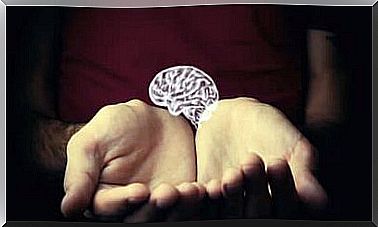Chronic Stress Can Make You Lose Your Memory

Chronic stress can affect your life without you even knowing it. Living with chronic stress is like living on a high-speed train. In the beginning everything seems normal and you are grateful that it is going so fast. Little by little you realize that you are barely enjoying the view and that your body and mind are starting to resist the ride.
Thich Nhat Hanh, the well-known Buddhist monk and author of many books, including Being Peace , argues that your feelings and emotions are like clouds that come and go in the wind. This is true, and in the middle of it it’s hard to find your balance, find your inner peace and let your mind work as it should.
It is not easy to process the psychological effects that stress and anxiety have on your mind. The problem, however, is that experiencing chronic stress makes it worse. If you are in a state of chronic stress for a long time, it will do you a lot of damage and you will start to see its hidden effects.
You need to realize that being in a stressful environment or under stressful circumstances can take a toll on your body. It can lead to muscle aches, digestive problems, sleep deprivation and many other factors that affect your quality of life. However, there is something else worth mentioning: you can also suffer from amnesia.

Chronic stress and gradual memory loss
When you’re stressed, you feel the world spinning too fast around you. However, it is the opposite. Your cognitive skills are slowed down. Among other things, it is more difficult for you to concentrate, make decisions and start a new task. Moreover, your mind plays scary games with your head, giving you doubts and threats that are not real.
It may seem unnecessary, but stress creates more stress. So, and even if you notice the headaches, dizziness and trouble sleeping, you don’t realize how damaging it is to your emotional and cognitive performance. Feeling unwell, helpless, unmotivated, and forgetting things are symptoms you should take seriously.
Chronic stress and memory loss
Suffering from stress from time to time is not dangerous. In most cases, stress can help you achieve certain goals, overcome certain challenges and make it easier to continue living as a human being. However, if that condition becomes permanent, you will begin to see its hidden effects.
Doctor Jannine Wirkner from the University of Greifswald conducted studies that show something important. Acute stress, in small amounts, can improve your memory. This is great if you need to do tests. However, chronic stress and the constant release of cortisol makes it harder for you to create new memories.
Stress can disrupt any of the memory processes in your brain. This means it interrupts encryption, consolidation and recovery.

Chronic stress and its effects on the hippocampus and prefrontal cortex
On the other hand, another study by Dr. Kim Jeasokok of the University of Florida yielded interesting findings. When the cortisol level is too high, the morphology of the hippocampus changes. This brain structure, related to your memory and emotions, shrinks as a result of stress hormones.
There is also another downside to chronic stress. The fact that you are in a constant state of alarm causes your amygdala to stop the activities of your prefrontal cortex. This can make it harder to use logic, think about things, and make decisions.
The relationship between memory and stress
Chronic stress can make things more complex than you initially thought. Remember that it becomes chronic if you worry about something for weeks or months and are under a lot of pressure. This makes your memory deteriorate. Post-traumatic stress disorder, however, makes you remember specific things better.
- When you have dramatic experiences with a high emotional charge, your hippocampus holds those terrible images and feelings indefinitely.
- However, such experiences can also make it more difficult to create new memories. This gives way to problems with reasoning, such as poor reflective and logical analysis, lack of focus, and poor decision-making, among others.

This shows how complex your brain can be. Despite these circumstances, trauma, and how chronic stress affects you, try to remember this. Your brain is like plastic, it can change and reverse these effects.
Physical activity, psychological therapy, meditation, stress management, and a healthy lifestyle can help improve the way you feel and improve brain plasticity. You should start today!








